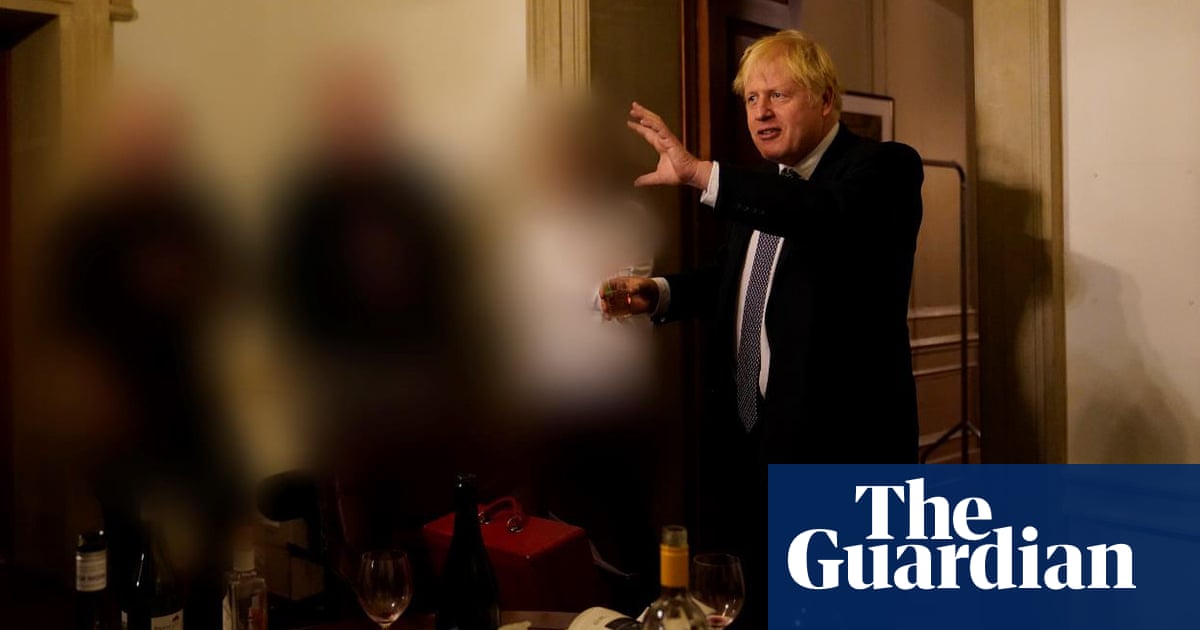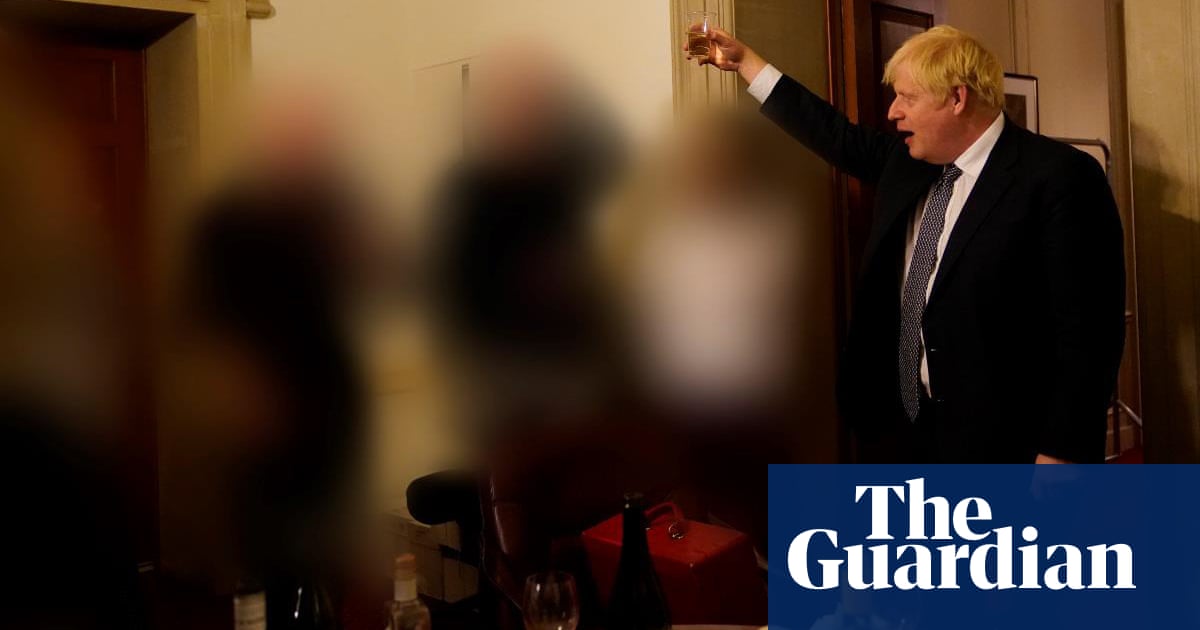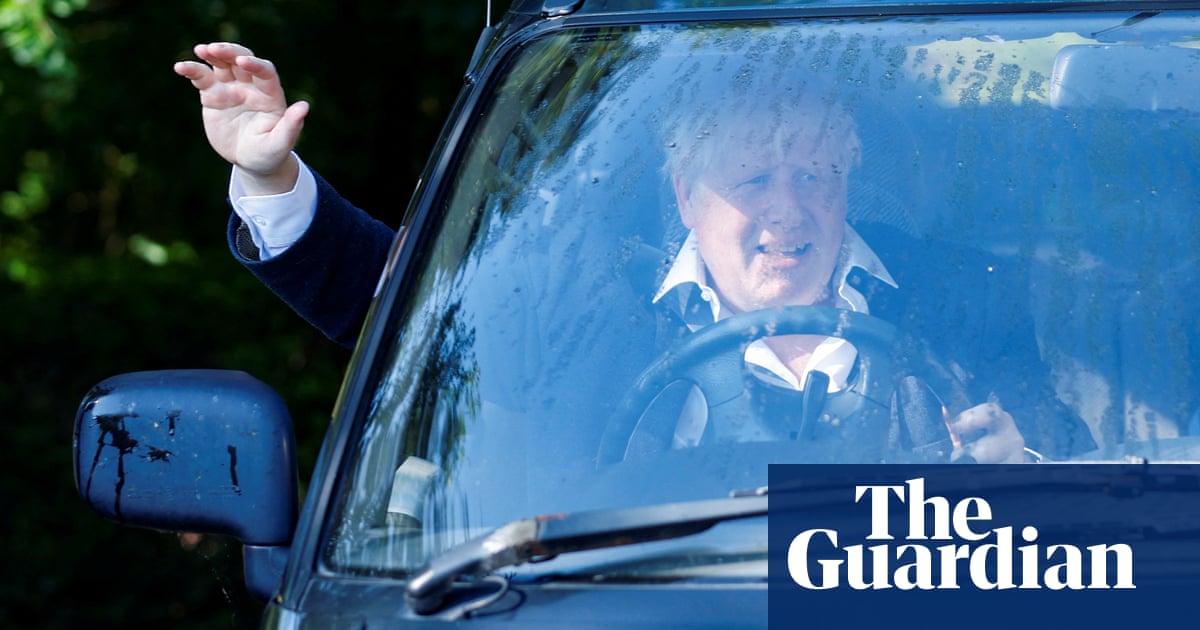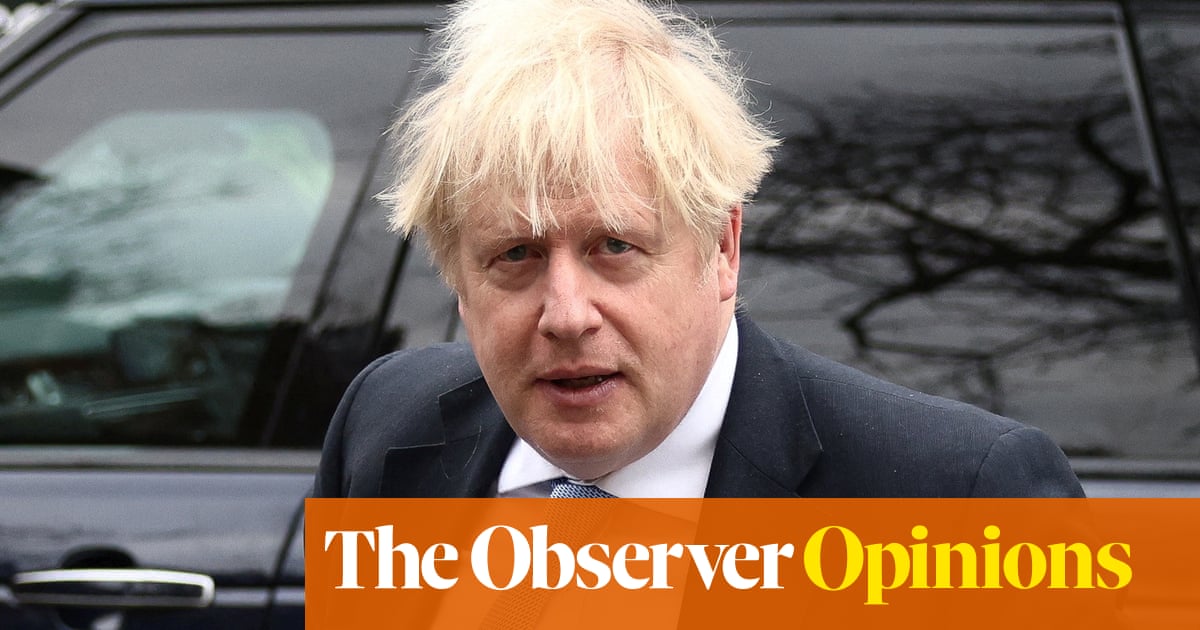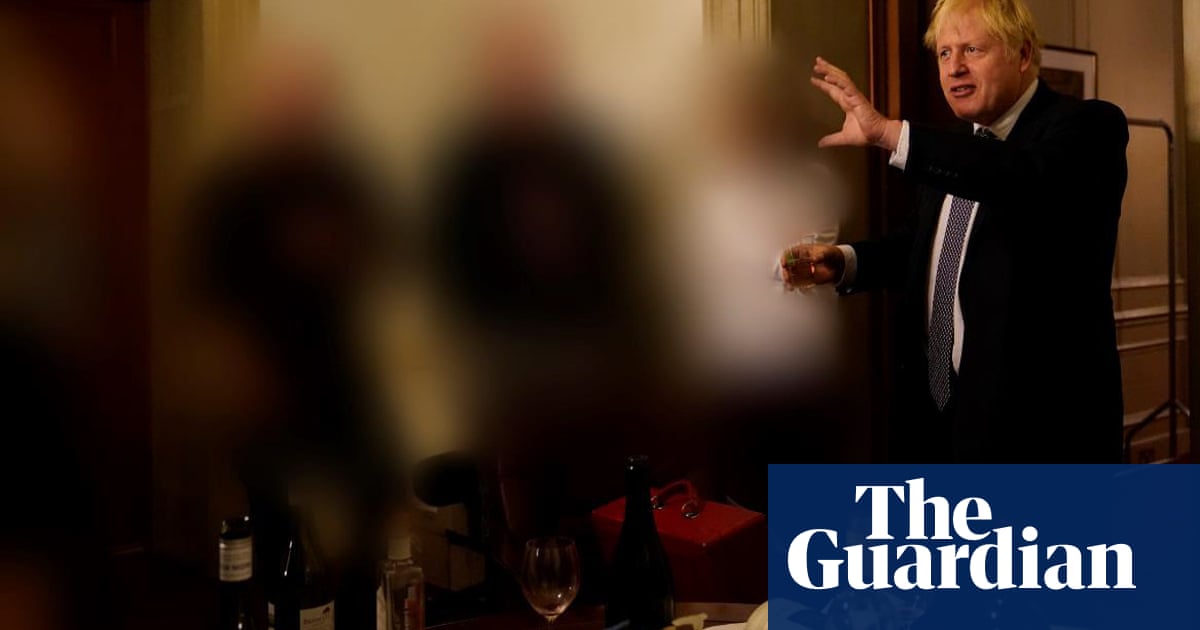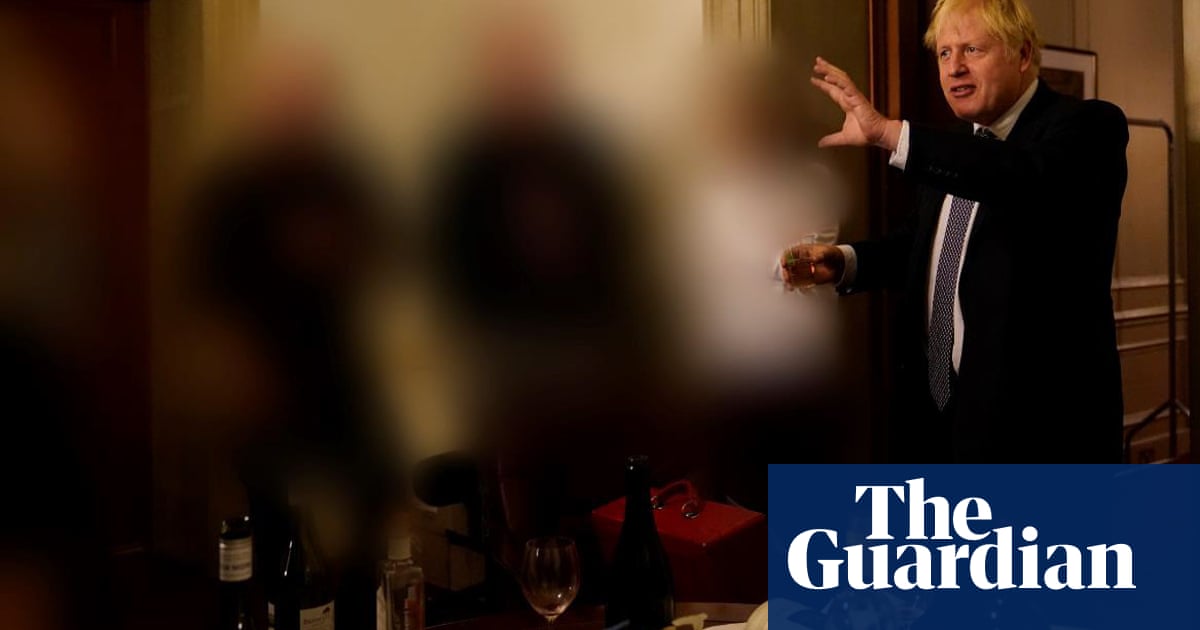
Boris Johnson may be the only witness called by the privileges committee for its investigation into whether he misled parliament over Partygate, as the inquiry has rebuffed his lawyer’s request to give evidence alongside him.
The former prime minister is preparing to appear at a televised hearing on Wednesday. The length of the grilling will depend on how much he says.
His counsel, David Pannick and Jason Pobjoy, had argued that Johnson should be allowed legal representation, citing a precedent where lawyers had given evidence as witnesses on key legal points.
“There is no good reason, in our opinion, why Mr Johnson should be denied the opportunity to have his counsel address the committee as a ‘witness’ on any issues of principle which arise,” they said in a submission.
“The committee points out that … Mr Johnson is not facing a criminal trial. But he is, of course, facing very serious allegations and potentially severe penalties.”
But a spokesperson for the committee said: “The only witness invited to give evidence on 22 March is Mr Johnson. The committee has always been clear that witnesses may receive legal advice throughout the course of the inquiry and may have legal advisers present at any oral evidence session.
“However, legal advisers may not speak on behalf of the subject of the inquiry in oral evidence, and witnesses must address committees, which act on behalf of the house, themselves.”
Johnson has yet to take up an invitation from the committee to submit written evidence in relation to the inquiry, which is looking into whether he misled the House of Commons by telling MPs that “the guidance was followed and the rules were followed at all times” in Downing Street during Covid lockdowns.
The committee could call other witnesses after the hearing, but sources suggested the current trajectory was that Johnson may well be the only person called to give evidence. Further witnesses could be called if evidence provided by Johnson necessitated the questioning of others, or other points needed clarifying, but there were no other scheduled oral evidence sessions.
Johnson’s appearance will come after an interim report by the cross-party committee found that there was significant evidence that he misled MPs over lockdown parties, and that he and aides almost certainly knew at the time that they were breaking rules.
Government insiders are frustrated that Johnson could be dominating the news agenda next week, and reminding the public of the Partygate scandal. But they are resigned to his appearance and will try to focus on other matters.
“It’s the Boris show. We want to distance ourselves from it, so we’re just going to crack on with everything else,” one said.
There is no denying that the hearing comes at an unwelcome moment for Rishi Sunak, to whom the majority of Tory MPs are feeling well disposed after a budget without major backlash and progress on ending strike action.
The prime minister also faces a crunch vote on Wednesday on the Stormont brake, which is part of the Windsor framework on the Northern Ireland protocol which he helped to negotiate. One official insisted there were “genuinely no machiavellian tactics this time” on the timing of the vote, and that it had not been arranged to move the news agenda on from Johnson, but it does mean that two problematic issues are cropping up on the same day.
Sunak is reportedly set to give MPs a free vote on Johnson’s future if the privileges committee finds he deliberately misled the Commons about parties in Downing Street during the pandemic, according to the Times.
The paper said Sunak was understood to have decided not to whip MPs to protect his predecessor.
A significant number of MPs fear a return of Partygate and Johnson to the front pages would cause more damage.
A Channel 4 News poll this week of “red wall” seats in the north of England and in the West Midlands showed there would be no benefit from Johnson returning as leader of the Conservative party, with Sunak leading him by 20 points.
One former minister said: “Unfortunately, there are a fair few of my colleagues who are incapable of letting go of the idea of Johnson the Redeemer. Their answer to everything about our current electoral position is: why don’t we get back behind the proven winner?”
There were, he said, two answers to that. “Firstly, because it would split the party and lead to en-masse departures of our MPs who despise him. And secondly, because the country would think we had totally lost the plot.”
Another senior backbencher said that, for them, the most pressing question was not the possibility of Johnson’s return, but the more immediate concern about how the party survived a vote on a potential sanction. “I had assumed it would be a fudge – I still think it might be – that he might be found not to have been technically aware of misleading parliament.
“But the latest stuff [the committee’s interim report] made me think maybe not. So then we will have this very real division of conscience in the party, where it gets to the point where if you vote either way on a sanction for Boris, you hand the Labour party a weapon.”
Johnson is said to be in fighting spirit ahead of Wednesday’s appearance, and this week was reselected as MP for Uxbridge and South Ruislip, despite rumours that he would seek a safer seat elsewhere. But the privileges committee verdict could be a considerable hurdle to his efforts to remain as an MP – let alone any ambitions of returning as party leader – if they recommend a suspension and that triggers a recall petition.




